How to Start a Dump Truck Business: A Comprehensive Guide

Does Liability Insurance Cover Theft? Exploring the Coverage of Liability Insurance
June 23, 2023
Is Trucking Business Profitable? Exploring the Pros and Cons
July 31, 2023Starting a dump truck business can be a tremendous entrepreneurial possibility for the ones interested in the development and transportation industry. Dump trucks play an important role in efficiently moving materials in construction, mining, and landscaping. If you’re considering venturing into this field, then this blog can help you with a step-by-step guide on how to start a dump truck business effectively. From understanding the industry to acquiring the necessary system and securing contracts, we will cover the most crucial aspects of launching and running a profitable dump truck business.
1. Research and Planning:
- Industry Overview: Begin by conducting thorough research on the dump truck industry. Understand the market demand, competition, and potential clients in your target area. Identify the types of projects that require dump truck services, such as construction sites, roadwork, and excavation projects.
- Business Plan: Create a comprehensive business plan outlining goals, target market, pricing strategy, marketing approach and financial forecasts. A well-structured business plan serves as a roadmap and guide for decision-making throughout the startup process.
- Legal and Regulatory Requirements: Familiarize yourself with the legal and regulatory requirements for operating a dump truck business in your jurisdiction. This can entail getting the required authorizations, insurance, and permissions, as well as following all safety and environmental laws.
2. Acquiring Equipment:
- Dump Trucks: Determine the types of dump trucks you’ll need for your business based on the projects you aim to serve. Consider factors such as load capacity, fuel efficiency, durability, and maintenance costs. You may choose to purchase new or used trucks, lease them, or explore financing options.
- Maintenance and Safety Equipment: Ensure you have the necessary tools and equipment for truck maintenance, such as tire changing tools, oil filters, and diagnostic equipment. Additionally, invest in safety equipment, including reflective vests, cones, fire extinguishers, and first aid kits.
- Vehicle Insurance: Acquire comprehensive vehicle insurance that covers your dump trucks against accidents, theft, and damage. Consult with insurance providers specializing in commercial truck insurance to find the most suitable coverage for your business.
3. Building a Reliable Network:
- Establish Relationships: Forge connections with contractors, construction companies, and project managers in your area. Attend industry events, join professional associations, and leverage online platforms to expand your network.
- Subcontracting Opportunities: In the early stages of your business, subcontracting with established dump truck companies can provide a valuable source of revenue and experience. Seek opportunities to collaborate and build relationships with reputable companies in the industry.
- Marketing and Branding: Develop a professional brand image for your dump truck business. Create a logo, design business cards and a website, and utilize online marketing strategies such as search engine optimization (SEO), social media marketing, and local advertising. Promote your services by highlighting your reliability, timeliness, and competitive pricing.
4. Financial Management:
- Pricing and Cost Analysis: Determine competitive rates for your dump truck services by considering factors such as distance, load weight, and project duration. Conduct a thorough cost analysis, including fuel expenses, maintenance, insurance, permits, taxes, and overhead costs, to ensure your pricing is profitable.
- Accounting and Bookkeeping: Implement a robust accounting system to track income, expenses, and profitability. Consider using accounting software or hiring an accountant to assist with financial management tasks.
- Financing Options: Explore financing options to cover the initial costs of starting your dump truck business. This may include personal savings, loans from financial institutions, or leasing arrangements for equipment.
Conclusion:
Starting a dump truck business requires careful planning, industry knowledge, and effective management skills. By conducting thorough research, acquiring the necessary equipment, building a reliable network, and implementing sound financial practices, you can establish a successful and profitable dump truck business. Remember to adapt to market trends, maintain your equipment regularly, prioritize safety, and consistently provide excellent customer service. With determination and perseverance, your dump truck business can thrive in the construction and transportation industry.

